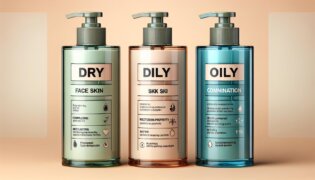No, Botox cannot cause ALS (Amyotrophic Lateral Sclerosis) as it’s a neurotoxin that temporarily paralyzes muscles for cosmetic or therapeutic purposes, while ALS is a progressive neurodegenerative disease affecting motor neurons.
Botox and ALS: Understanding the Differences
Botox, derived from the bacterium Clostridium botulinum, is a neurotoxin used to temporarily relax facial muscles for aesthetic or medical reasons. Its paralyzing effect on muscles is due to its ability to block the neurotransmitter acetylcholine, preventing muscle contractions. On the other hand, ALS is a neurodegenerative disease characterized by progressive damage to motor neurons, eventually leading to muscle weakness, paralysis, and death.
Botox Safety and Applications
Approved by the FDA for cosmetic and therapeutic use, Botox is a safe treatment when administered by certified professionals. Common applications include reducing facial wrinkles, treating hyperhidrosis (excessive sweating), managing migraines, and addressing muscle spasms. It is crucial to follow the recommendations of a qualified dermatologist and avoid self-administration or inexperienced providers.
Skincare Logix: Reliable Expertise in Botox and Skin Care
At Skincare Logix, a blog about skincare, we provide up-to-date information on Botox and skin care treatments. We prioritize your skin’s health and appearance, offering guidance on various concerns such as skin tags and their removal methods.
Skin Tags and Skin Tags Remover Options
Skin tags are small, harmless growths that can appear due to friction, obesity, or genetics. When considering a skin tags remover, it’s essential to consult with a dermatologist or a trained professional. This can help prevent adverse effects, infection, or scarring. Common removal methods include cryotherapy, where liquid nitrogen is used to freeze and remove the skin tag, or a small surgical procedure performed under local anesthesia.
Can Botox Cause ALS
In recent years, Botox has emerged as a popular cosmetic and medical treatment, primarily used to address signs of aging, manage muscle spasms, and treat various conditions. However, with its widespread use, it is essential to debunk myths and misconceptions associated with this substance, such as the claim that Botox can cause Amyotrophic Lateral Sclerosis (ALS).
The Science Behind Botox and ALS
Botox works by blocking the release of acetylcholine, a neurotransmitter responsible for muscle contractions. As it prevents muscles from contracting, it helps in temporary relaxation and smoothening. On the contrary, ALS is a neurodegenerative disease affecting motor neurons that transmit signals from the spinal cord to muscles throughout the body. The cause of ALS is still mostly unknown, with genetic factors accounting for a small percentage of cases.
There is no scientific evidence or established link suggesting that Botox can cause ALS. Botox is a local treatment, which means its effect is limited to the area of application, without causing any systemic reactions. As mentioned earlier, when administered by a certified professional, Botox is a safe and effective treatment option for various purposes.
Skincare Logix: Debunking Botox Myths and Misconceptions
At Skincare Logix, a blog about skincare, our mission is to provide accurate and reliable information about various skincare treatments, including Botox. We strive to debunk misinformation and educate our readers about the safety and benefits of different procedures.
Ensure Botox Safety with Skilled Professionals
The key to safe and effective Botox treatment lies in the expertise of the provider. It is crucial to choose a reputable and experienced dermatologist or aesthetic medicine specialist to administer Botox injections. Licensed professionals know the appropriate dosages and techniques, ensuring optimal treatment outcomes while minimizing the risk of side effects or complications.
Exploring Alternatives to Botox
While Botox is a popular choice for cosmetic and medical treatments, it is not the only option available. If you are concerned about the potential risks or prefer a more natural approach, consider exploring other options such as chemical peels, laser treatments, or dermal fill
FAQ Section: Botox and ALS
In this section, we address some frequently asked questions related to Botox and its connection to ALS. We hope to provide clear and concise answers to help readers better understand the topic and make informed choices regarding their skincare treatments.
Is Botox safe for individuals with a family history of ALS?
Yes, Botox is considered safe for individuals with a family history of ALS, as there is no scientific evidence linking the use of Botox to the development of this neurodegenerative disease. However, it is always advisable to consult with a healthcare professional before undergoing any treatment, particularly if you have specific concerns.
Can Botox be used to treat muscle stiffness in patients with ALS?
Botox is primarily used for cosmetic purposes and certain medical conditions, but it is not specifically indicated for treating muscle stiffness in ALS patients. It is essential to consult with a healthcare professional experienced in managing ALS to determine the most suitable treatment options for your specific needs.
Is there any increased risk of developing ALS after Botox treatment?
There is no evidence to suggest an increased risk of developing ALS after Botox treatment. Botox is a localized treatment that temporarily paralyzes muscles within the treated area and does not impact the motor neurons associated with ALS.
How soon after Botox treatment can side effects occur?
Any potential side effects from Botox treatment typically appear within a few hours to a couple of days following the procedure. These side effects are usually mild and transient, such as bruising, swelling, pain, or redness at the injection site. However, if you experience any severe or persistent symptoms, it is crucial to consult your healthcare provider immediately.
Can I undergo other skincare treatments while receiving Botox injections?
It is generally safe to undergo various skincare treatments while receiving Botox injections, but it is crucial to consult with a professional and discuss your specific treatment plans. This ensures that the combination of treatments is safe, and the schedule is appropriate to optimize the outcomes and minimize potential risks or complications.





















